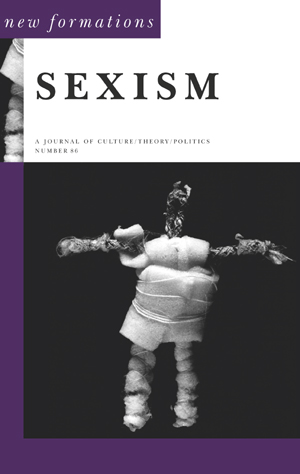
Booknote
New Formations - Print ISSN 0950-2378 - Online ISSN 1741-0789
Volume 2015 Number 86
Booknote
Ben Highmore
DOI: 10.3898/NEWF.86.BOOKNOTE.2015
Abstract
Simon Stewart, A Sociology of Culture, Taste and Value, Houndmills, Palgrave Macmillan, 2014.
Today it would be impossible to write a book about cultural sociology and the role of taste and value without devoting considerable space to the work of Pierre Bourdieu. Bourdieu’s work, with its repetitive phrasings (‘structured structures predisposed to function as structuring structures’) and intricate lexicon of interlocking terms (habitus, field, and capital) can become, for some, all-encompassing. For many it offers the most persuasive and complete account of culture as an arena for social reproduction and for taste as ‘culture’s way of masking domination’ (as Antoine Hennion put it). The more difficult task is to find room for other accounts of culture, value and taste once you have let Bourdieu loose.
Simon Stewart’s book carefully places Bourdieu at the centre of his account while also allowing room for other accounts of taste and value to circulate. Perhaps most usefully he shows us the limits of Bourdieu’s enterprise. Rather than simply rehearse the surface criticisms that have been made of Distinction (that it is dated, only applies to France, and so on), he cuts to what is crucially missing in that book: Bourdieu actually tells us very little about what it feels like to like something. Bourdieu tells us a lot about the difficulty of having the confidence to like opera, for instance, without also having the sort of upbringing that makes that a comfortable possibility. He gives us a sense of the way that cultural preferences can open you up to the disdainful opprobrium of those whose tastes are deemed superior. But as far as being able to explain or even describe the raptures and disappointments of the person who loves to cook or who loves opera despite the obnoxious social scene that surrounds it, Bourdieu has little to say.
Stewart’s response to this is to suggest ‘zooming-in’ on the event of taste. It is a clunky phrase but you get the picture. Taste needs an attention that can grasp it up-close, that can attend to it as an activity that may take an ‘innocent’ from incomprehension and alienation to acquiring a ‘taste for’ something. It is too easy (and we have to thank Bourdieu for this) to see a preference for improvised jazz as the expression of a disposition of a member of the ‘dominated faction of the dominant group’ (however true that may be). It is much harder to describe how our sensorium changes as those saxophone squawks and bleeps are transformed from noise to sensual forms. Stewart’s book is an accessible guide to the sociology of culture that takes us from Weber to issues surrounding globalisation and value. It offers a critical account of some of the central ideas of the discipline and opens up a space for new sociological enquiries that may be more attentive to the phenomenal forms of taste.
SORRY - you are not registered as being permitted online access to the full text of this article
You have the following options:
- If you are viewing this via an institution or academic library you can ask that your institution takes out a Subscription to this journal.
- If you already have a Personal Subscription please login below
Forgotten your username / password? Click here to locate
- Purchase an annual Personal Subscription
PRINT + DIGITAL personal subscription (£45 / year)
DIGITAL personal subscription (£30 / year)
A Personal Subscription provides immediate access not only to the single article you are seeking, but also to all past and future articles in this journal up to the expiry of your annual (calendar year) subscription. - Purchase immediate access to this single article (UK£7.00) - Buy article Coming Soon
To cite this article
Ben Highmore (2015) Booknote, New Formations, 2015(86). https://doi.org/10.3898/NEWF.86.BOOKNOTE.2015
